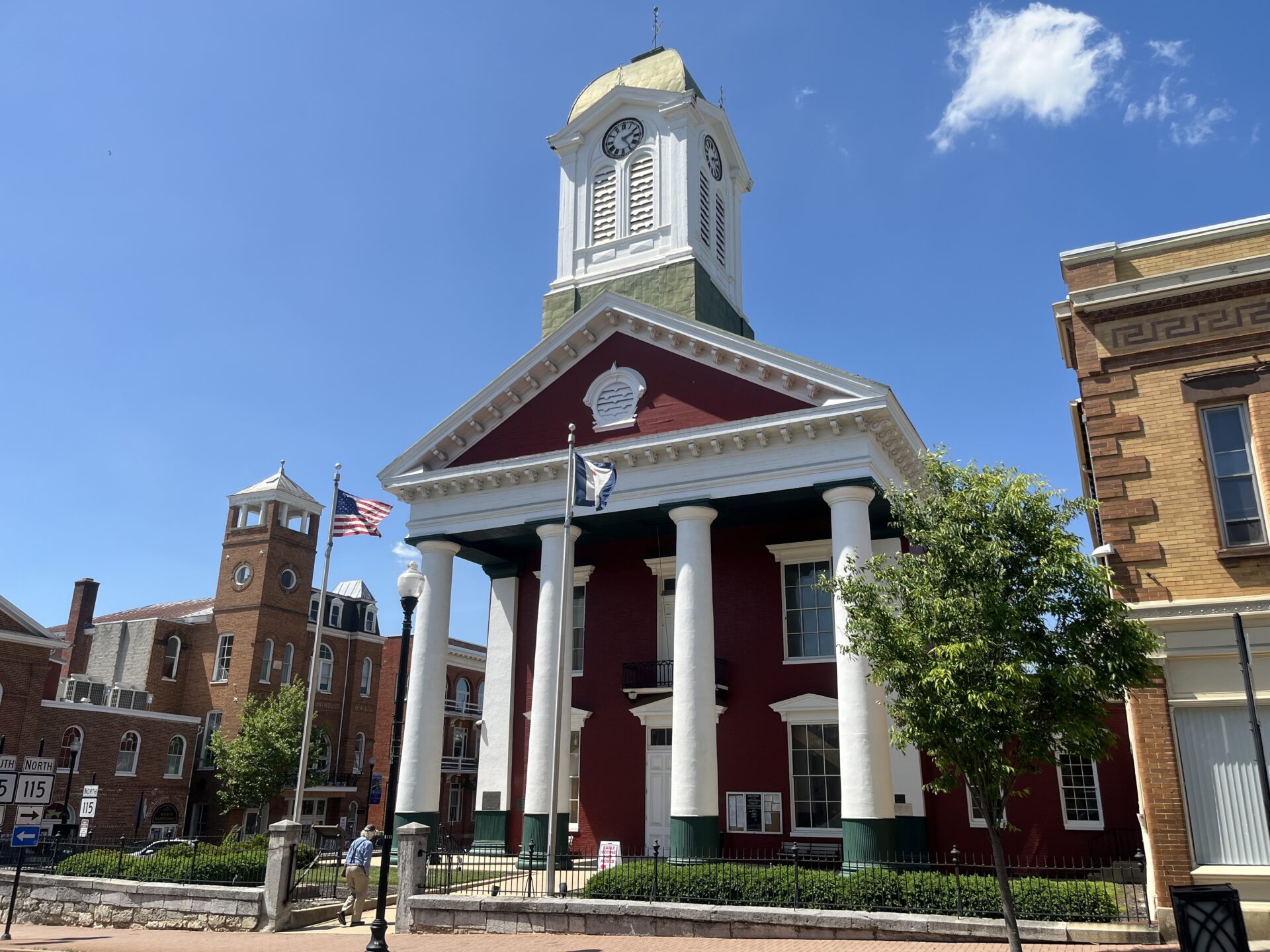Days before a West Virginia circuit court removed her from office, former Jefferson County Commissioner Jennifer Krouse unexpectedly left the Republican Party behind.
Elected as a “staunch, God-fearing conservative” in 2022, Krouse swapped political affiliations in late April and registered with the Mountain Party — West Virginia’s progressive, environmentalist affiliate of the Green Party.
Now, county officials and party representatives alike are scratching their heads over how to fill Krouse’s vacancy, and what party her replacement must come from.
A last-minute switch
Two members of the Jefferson County Commission — Krouse and state auditor candidate Tricia Jackson — were removed from office by order of a West Virginia circuit court Wednesday.
The commissioners skipped seven consecutive meetings from September to November 2023, protesting efforts to fill a vacant commission seat with candidates Krouse previously said were not “actual conservatives.”
A panel of judges ruled that this weeks-long protest amounted to “official misconduct” or a “neglect of duty,” as their absence prevented the commission from meeting quorum and conducting business.
But about one week before the court’s decision, Krouse switched political affiliations.
Under current West Virginia law, county commissioners have 30 days to fill vacant seats by a simple commission vote. Their appointee must be “a person of the same political party” as the individual who held office “immediately preceding the vacancy.”
This year, the West Virginia Legislature passed a bill amending this law so that appointees must be members of the vacating officer’s party upon election. Lawmakers repeatedly cited contentions over vacancy proceedings in the Jefferson County Commission while updating the policy.
But the new law does not take effect until January 2025, and the earlier policy still remains in place. That means Krouse’s successor must be a member of her party upon removal from office — the Mountain Party.
Photo Credit: Jefferson County Commission
Filling vacancies (again)
Stephen Stolipher, sitting president of the Jefferson County Commission and chair of the Jefferson County Republican Executive Committee, said he is unsure why Krouse switched parties.
“She certainly has never really acted like a Republican, [but] the Mountain Party is far, far left,” he said.
Mountain Party Chair Denise Binion is not sure either. She said the ousted commissioner’s “politics don’t match the party at all.”
Krouse did not respond to written requests for comment on this story. But her decision follows months of disputes with the local Republican party, and has implications for the selection of her successor.
As it currently stands, the three remaining members of the Jefferson County Commission have until May 31 to fill the vacancies through a majority vote.
Krouse’s vacancy must be filled by a member of the Mountain Party, and Jackson’s vacancy must be filled by a member of the Republican Party, per state law.
With a general election slated for this fall, these appointees would only hold office for a few months, according to Deak Kersey, chief of staff and former legal counsel for the West Virginia Secretary of State.
To keep their positions, appointed commissioners must be voted into office in the general election immediately following their appointment. Otherwise, Kersey said they only remain in office until the county certifies the results of its November general election, when new commissioners are elected.
But the future of the Jefferson County Commission is muddied by the possibility of a judge siding with Krouse or Jackson on appeal.
Photo Credit: Jack Walker/West Virginia Public Broadcasting
A potential appeal
Jackson has already publicly stated that her attorney will appeal the circuit court’s decision to remove her from office.
If the appeal is rejected, vacancy proceedings will continue as usual, Kersey said. However, things are more complicated if a judge decides differently.
While awaiting a result on the appeal, a circuit court judge could suspend Krouse and Jackson’s removal from office, allowing them to return to work until the decision is finalized, Kersey said.
Alternatively, Kersey said that a judge siding with the commissioners after their vacancies have been filled would likely nullify any appointments, restoring Krouse and Jackson’s positions.
If such a decision came after the general election, things would become even more complex, and Kersey said it would likely require clarification from the state’s Supreme Court.
“The court would have to give some guidance to that effect, because it would have a lot of downstream impacts,” he said.
In this case, Kersey said the election results would most likely be nullified, allowing Krouse and Jackson to serve their original, full terms — until 2029 and 2026, respectively.
Kersey said that he is unsure how long the appeal process would take, as decisions vary on a case-by-case basis. But he said courts would likely reach a decision on a quickened timeline.
Courts “treat election issues expeditiously because of the fact that we have elections every two years,” he said. “You don’t want the government putting people in places for too long that weren’t elected by the people.”
In the coming weeks, Kersey said representatives from Secretary of State Mac Warner’s office will meet with members of the commission to offer guidance on filling the current vacancies.
In the meantime, Stolipher said the commission will continue to meet on its regular, biweekly basis.
“We currently have a quorum of three members,” he said. “We’re still meeting and conducting business.”
